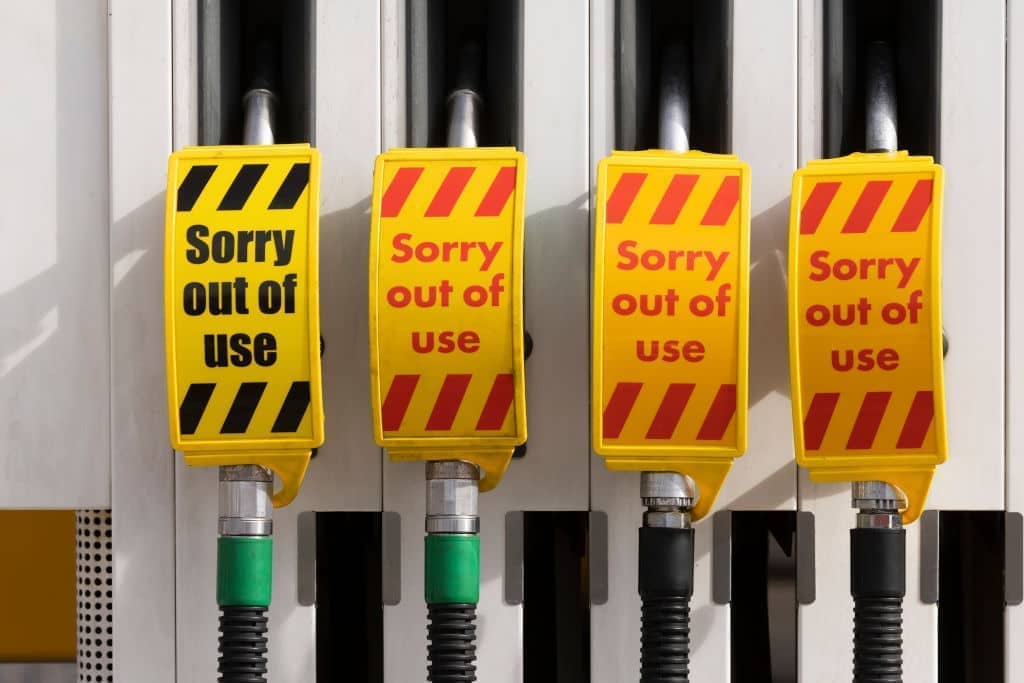The EFFing crisis continues to bite. We hear dire warnings that the average household is set to pay hundreds of pounds more this winter for their energy use. Yet thousands of Brits remain blissfully unaffected. I know because I am one of them: among the 150,000 UK residents who live off-grid – that is, without any mains utilities.
This means I manage my own water supply, provide all my own power and deal with my own waste. Most people consider us at best eccentric and at worst crazy. But in a time of increasingly unaffordable energy, living off grid is a wise decision.
You’ll find us living behind hedgerows, at the bottom of suburban gardens, nestling in woodlands, bobbing about in boatyards. I built my own off-grid structure during lockdown, a 30 square metre shed in a small field I found on eBay.
Much of life, after all, can be conducted outside, even in winter, with a little tarpaulin and the right clothes
It’s not all easy: the daily grind involves monitoring batteries and tending to solar panels or wind turbines. But the upside is obvious: we’re happily insulated from the rising cost of heating and lighting. In the United States, where the lifestyle is more widely accepted, the number of off-gridders is much higher than in Britain. Yet the number of people in the UK choosing to go off grid is rising, despite the considerable practical and legal obstacles.
We are slowly shedding our image as stone-age shed-dwellers. We are proving that, thanks to modern batteries and mobile technologies, we can be as comfortable as the rest. Despite the stereotype, we tend not to live in isolation. We prefer to band together in small settlements to pool the investments and skills required. As with the rest of the country – though on a much smaller scale – our power supplies can be centralised. This is known in the trade as micro-gridding, and it enables economies of scale while maintaining autonomy of supply.
Being responsible for producing your own energy makes you much more aware of waste: off-gridders quickly realise it is unsustainable to produce and store enough electricity to consume at the same rate as those connected to the grid. Children who leave lights on soon learn their behaviour is unacceptable. They also learn that the more electricity we consume each day, the more batteries, solar panels and wind-turbines we must buy (and manage). Off-grid children are far more responsible about using energy.
Others could learn from us. If we are to get a grip of Britain’s energy crisis – which is likely to continue for years to come – our current approach is just not sustainable. Brits need to think carefully about downsizing their homes. As a rule of thumb, the bigger the house, the more it costs to build, manage, maintain, and to heat a property. The energy consumption of a 2,000 square foot Victorian semi-detached home with a garden might easily be four times that of a 1,000 square foot ex-council flat. With all the talk about Net Zero, it’s surely time for people to consider living in smaller homes – and for the government to encourage people to make this move.
More generally, encouraging people to live off grid could also provide a simpler way for the Tories to meet their manifesto target of building 300,000 new homes annually. Tens of thousands of ‘off grid’ homes could be built in greenfield sites. Without the disruption of having to hook up these homes to grids of power and water, the cost would be much cheaper. What’s more, Nimbys are far less likely to kick up a stink.
Some rural campaigners who want the countryside to remain unsullied by human habitation would still be offended. But there is a pent-up demand for rural homes, and a huge amount of unused land. Rewilding is very fashionable, but will do little to help: we could choose instead to devote more acres to eco-homes. Why should the countryside remain entirely a place we drive through when when it could be teeming with human life and small-scale food production?
Another lesson from the off-grid community is that dependence on renewable energy brings you closer to nature, which improves your quality of life. Relying on the wind and sun for power, you learn to respect them and become attuned to them. It is the lack of respect for nature – the belief that we are somehow outside nature, that has led us all to the present climate predicament.
My own experience of living off-grid part time has taught me that a tiny home need not feel claustrophobic if there is enough outdoor space. Much of life, after all, can be conducted outside, even in winter, with a little tarpaulin and the right clothes. True, there is no room for the range of possessions we all take for granted. But off-gridders like me have concluded that these possessions bring little happiness.
The other lesson I’ve discovered from living off-grid is more mundane: insulation is key to lowering energy consumption. If the ‘Insulate Britain’ M25 protestors could square it with their principles, they could argue the case for insulation simply on the basis of reduced household energy bills. In my shed, I used second-hand insulation – 150mm thick Celotex – sandwiched between internal chipboard and external cladding. With only a tiny wood burner, my place is toasty all year round.






Comments